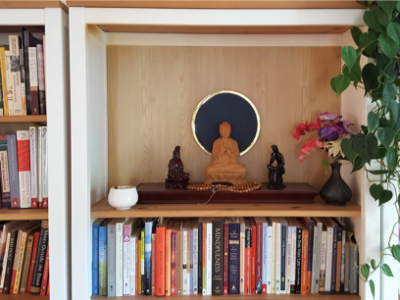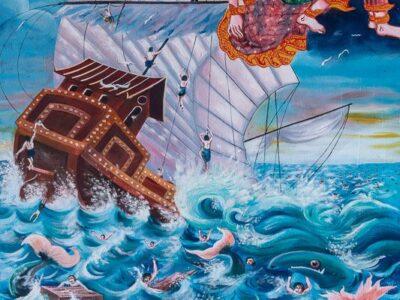Lojong Slogan #38: Don’t seek others’ pain as the limbs of your own happiness.
About This Resource
Details
Don’t seek others’ pain as the limbs of your own happiness. What does it mean? Here a student at Middle Way School, unpacks slogan #38 in our ongoing series of students explaining Atisha’s Lojong slogans. This slogan is about giving up what Germans call “Schadenfreude” which is defined as, “Feeling happiness when someone fails, makes a mistake, or is humiliated.”
Quotes:
“This slogan is quite straightforward: you hope that somebody else will suffer so you can benefit from it. … Although it may benefit us if someone else experiences misfortune, we should not wish for that and dream about what we could get out of such a situation.” From Training the Mind & Cultivating Loving-Kindness by Chogyam Trungpa Rinpoche
“This slogan is about exploitation. It is about taking advantage of others in order to maintain our wealth and privilege. It could also be applied to our attitude to our mother earth. It is about the habit of take take take, with no gratitude, and with blindness as to the consequences.” —Judy Lief, in “Working with the Slogans of Atisha — A practical guide to leading a compassionate life”
“I have a few people in my life who fall into this category, and I’m amazed at how happy I am when one of them writes me a letter and tells me that things are going badly. Conversely, I feel haunted by distaste when I hear that things are going well for them. There’s still the memory of how they hurt me, and I wish they would just continue to go downhill and drop dead, painfully. That’s how we seek others’ pain as the limbs of our own happiness.” —Start Where You Are : A Guide to Compassionate Living by Pema Chodron
To reflect on our approach and attitude toward Lojong, consider this quote from Gaylon Ferguson’s article, “59 Ways to Turn Your Mind Around” in Lion’s Roar. “If we begin by contemplating the words of the teaching, we reflect again and again on their relevance to our actual lives. “Is this really true?” we ask ourselves. “What does it have to do with being in this world, this society, my community, my family, me?” Then, when we contemplate a teaching like impermanence, it moves from a neat, doctrinal concept, a reasonable idea, to a direct realization: “Death is real. It can come suddenly. This teaching includes me and everyone I know and love.”
Find more resources via our Index of lojong slogans.
Video by Chase Bauer.




